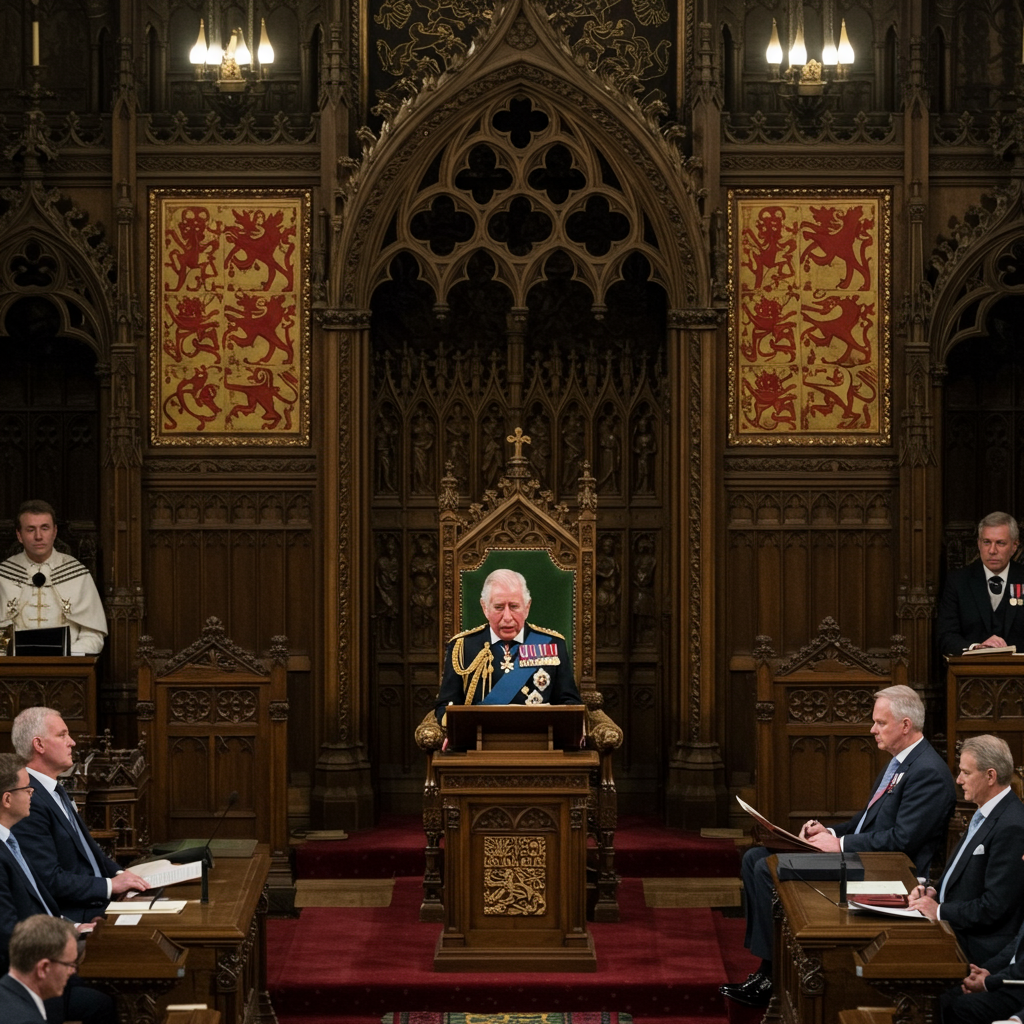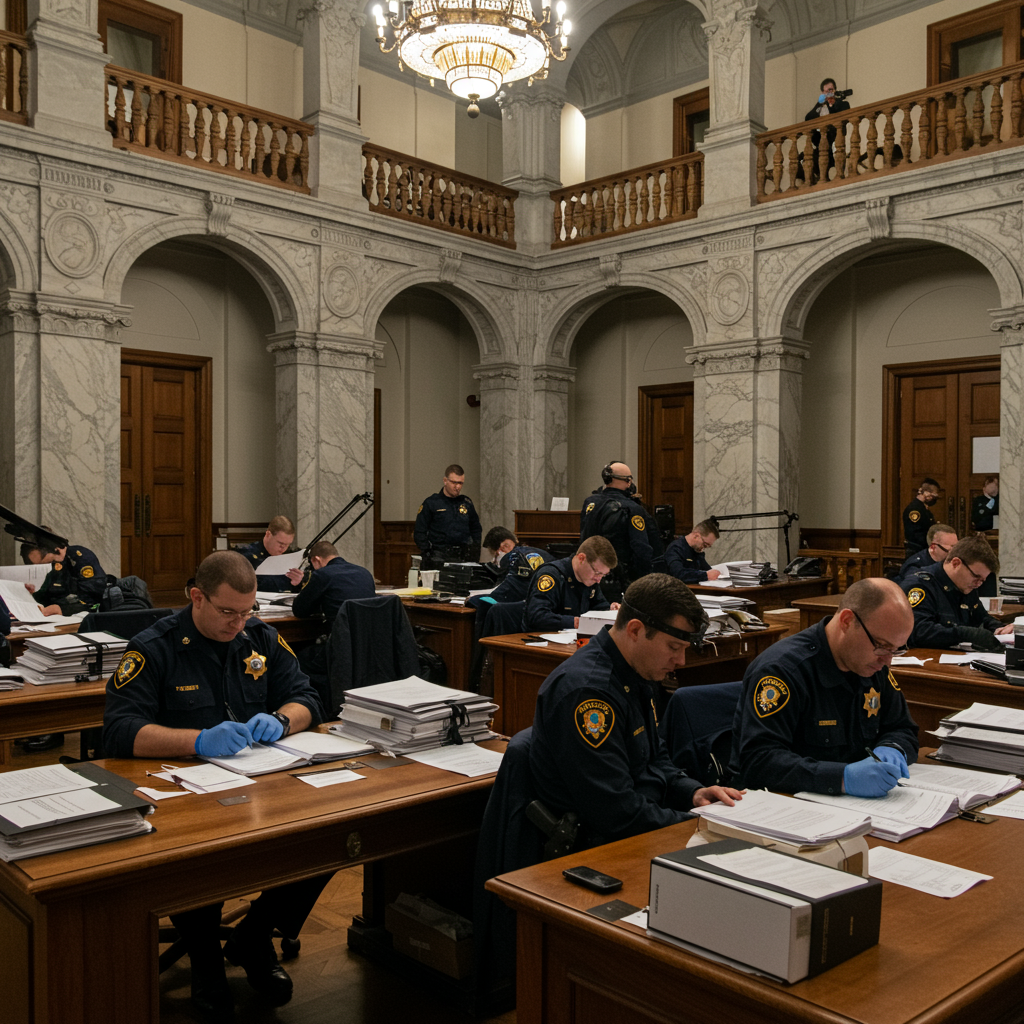In a moment of significant historical and political weight, King Charles III recently delivered the Speech from the Throne at the opening of Canada’s new parliament in Ottawa. This marked the first time a reigning monarch had performed this constitutional duty in nearly 50 years – Queen Elizabeth II last did so in 1975, following a previous address in 1955.
Occurring shortly after Prime Minister Mark Carney’s Liberal government secured victory in the April election, the address took place against a backdrop of heightened tensions and perceived threats to Canadian sovereignty from the United States under President Donald Trump, alongside the looming prospect of a trade conflict.
More than just a ceremonial occasion, the King’s decision to personally deliver the speech was widely seen as a deliberate, high-stakes diplomatic exercise and a symbolic show of support for Canada. It served as a clear affirmation of Canada’s independence and a subtle but firm “riposte” to external interventions questioning its sovereignty and place in the world.
A Powerful Message of Sovereignty and National Pride
The speech itself began with a powerful assertion of national identity and pride. Against the implicit pressures from its largest neighbour and economic partner, the King spoke of the “pleasure and pride” in witnessing Canadians unite with a “renewed sense of national pride, unity, and hope.”
He lauded Canada’s evolution since the last monarch delivered the speech in 1955, describing it as having grown into a “bold, ambitious, innovative country.” The King emphasized the Crown’s enduring role as a symbol of unity, stability, and continuity, standing proudly as a symbol of “Canada today, in all her richness and dynamism.”
The address concluded on a deeply patriotic note, echoing the national anthem: “As the anthem reminds us: The True North is indeed strong and free!” This resonant phrase underscored Canada’s determined independence in a challenging geopolitical landscape. The visit itself reinforced the message that Canada is a sovereign state with its own allegiances, firmly “not for sale.”
Navigating Global Challenges and Seizing Opportunity
The speech also addressed Canada’s position in an “uncertain world” facing “unprecedented challenges.” Acknowledging the changing nature of open global trade, particularly concerning relationships with key partners like the US, the King underscored the government’s commitment to reinforce established trading relationships, notably with European allies. Concurrently, Canada intends to continue pressing forward with economic and security discussions with the United States.
Framing the current difficulties not just as challenges but as an “incredible opportunity,” the speech highlighted Prime Minister Carney’s view that Canada stands at a pivotal moment. This is seen as a chance to “think big and to act bigger,” potentially embarking on the nation’s largest economic transformation since the Second World War.
Government Priorities: Addressing Domestic Headwinds
Central to the Throne Speech was an outline of the Liberal government’s domestic agenda aimed at tackling pressing economic and social issues. Key priorities included:
Economic Growth and Internal Trade: Commitments were made to accelerate major national infrastructure projects. The government plans to double a loan program designed to increase Indigenous ownership in significant projects. Legislation is also slated for introduction by July 1st to remove federal barriers to internal trade between provinces, estimated by the government to cost the country as much as C$200 billion ($145bn; £107bn) annually.
Housing Crisis and Affordability: Recognizing the housing affordability crisis as a top concern, the speech reiterated the campaign promise to double the rate of new home building to 500,000 per year. Plans include investing in prefabricated and modular housing and halving municipal development charges for multi-unit housing projects. A pledge was also made to eliminate the goods and services tax (GST) for first-time homebuyers purchasing homes under C$1 million, alongside a tax cut for the lower middle class.
- Crime: Addressing concerns about rising crime rates, the speech included promises for tougher penalties targeting specific offences like car thefts, home invasions, human trafficking, and drug smuggling.
- https://www.bbc.com/news/articles/c93lx42r42do
- https://www.bbc.co.uk/news/articles/c93lx42r42do
- https://www.aol.com/king-charles-visit-canada-shows-174635313.html
Strengthening Defence and Security
In response to ongoing pressure from allies like the US and NATO, the government committed to increasing defence spending, aiming to reach NATO’s target of 2% of GDP by 2030. The speech outlined plans to “rebuild, rearm, and reinvest” in Canada’s military, reinforcing defence relationships with European partners (including joining the “Rearm Europe” initiative), and strengthening Canada’s presence in the Arctic. Additionally, high-level talks are reportedly underway with the US regarding Canada’s potential participation in the proposed “Golden Dome” missile defence system.
Political Reactions and the Path Forward
While the speech laid out the government’s vision, it drew criticism from opposition parties. Conservative leader Pierre Poilievre argued the address lacked specific implementation plans for its major commitments, such as energy projects. The left-wing NDP’s House Leader, Alexandre Boulerice, pointed to perceived “big holes” in areas like climate action and women’s rights.
Ultimately, King Charles III’s delivery of the Throne Speech was far more than a constitutional formality. It was a historic moment that not only outlined the new government’s ambitious agenda but also served as a powerful, symbolic affirmation of Canadian sovereignty, unity, and resilience on the world stage.



